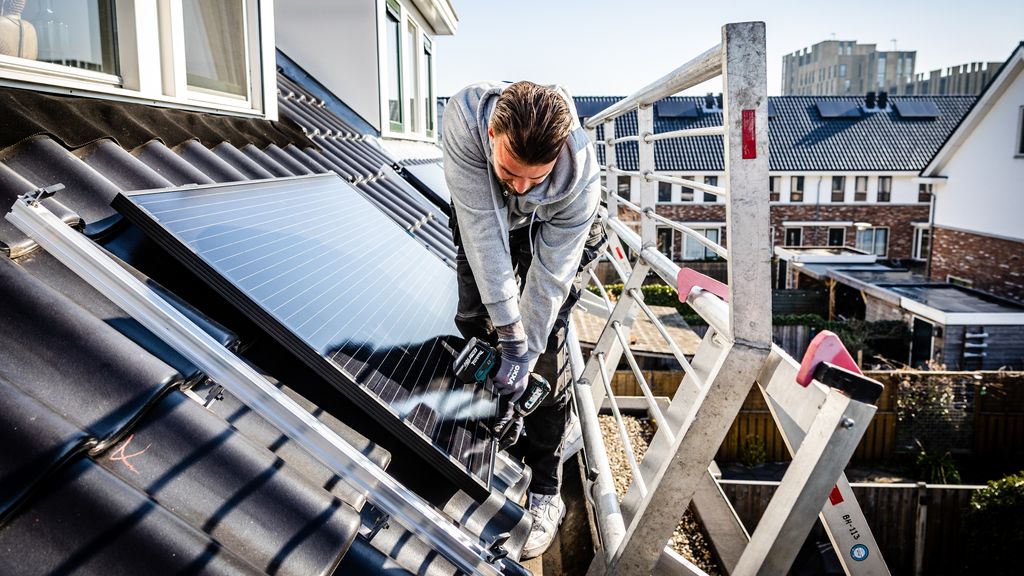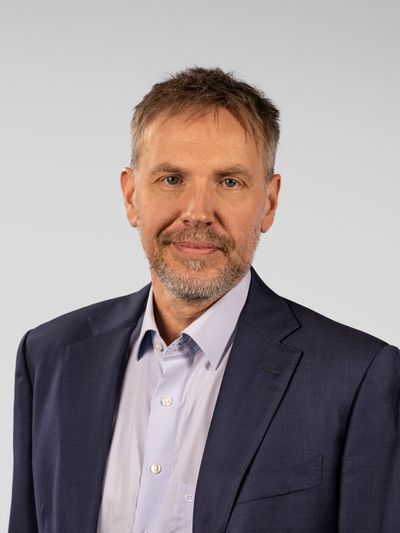-
Marin Döntger Tippens
Reporter
-
Marin Döntger Tippens
Reporter
Since the summer, homeowners have shown much less interest in purchasing solar panels. Installers and trade associations are seeing a “significant decline” in demand, according to a survey News hour.
After years of tremendous growth – thanks in part to an attractive subsidy scheme – there is now a decline for the first time. “We are seeing a decrease in incoming orders of about 30 percent compared to recent years,” says Hans Drijfhout from a medium-sized installer from Amersfoort. One colleague from the Hagelanden region even saw a 90 percent drop in demand in recent months.
Industry organization Holland Solar recognizes the picture. “The decline is so significant that we’re concerned about it. We’re wondering: What’s going on here?” says director Wijnand van Hove.
Market research agency DNE Research cannot provide exact figures, but confirms that demand for solar panels has suddenly become much lower. “The first half of 2023 was the best half of the year ever,” says researcher Dan Janssen. “But since the summer, the number of rooftop solar panel installations has clearly declined.” “For the first time, there is a decline. Given the favorable first half of this year, there will likely be year-on-year growth in the number of solar panels for individuals.”
Over the past ten years, the number of solar panels in the Netherlands has increased significantly. There are no figures for 2023 yet, but installers and the trade association have seen a decline since the summer.
At Milieu Centraal, which provides independent sustainability consulting, they have seen a sharp decline in visitors to their website since the spring. This is an indication that people are no longer keen on buying solar panels. According to Mariken Stolk from Milieu Centraal, a combination of factors is creating uncertainty among consumers.
Abolition of the compensation system
To begin with, this spring the House of Representatives passed a law requiring the abolition of the netting system from 2025. Thanks to this arrangement, panel owners can later use the energy they supplied to the grid without additional costs. This arrangement ensured that many people dared to buy solar panels, but they are no longer necessary now, according to politicians. This law has not yet been approved by the Senate, but it already appears to raise some doubts among consumers.
“If you don’t know what the payback period is for solar panels, it could put off your purchase.” The fact that energy prices have stabilized somewhat after last year’s strong increase also plays a role, according to Stolk.
Stolk also believes the announcement of the electricity feed-in tax from energy company Vandebrunn has caused some unrest. Customers who supply more electricity to the grid daily than they consume will have to pay for it. For an average solar panel owner, this amounts to 10 to 20 euros per month, according to Vandebrunn.
Although Vandebron is currently the only energy company that passes these costs on to the customer separately, more energy suppliers are considering ways to have consumers contribute to the additional costs incurred by energy companies due to the offsetting system.
Payback period
“From a financial point of view, you see that the feed-in tax affects the payback period. That makes it less attractive to people.” Stock says. According to Melio Central’s calculations, the payback period for an average family with 10 panels will increase from 6.5 to 8 years when the compensation system is phased out. If the feed-in tax continues to exist, the recovery period will increase to 22 years.
According to Stolk, the latter possibility is unlikely, but this calculation causes some turmoil. This angered the installers and the trade association. “The hesitation among consumers is not based at all on facts, but on feelings,” says Van Hoof of Holland Solar. “Solar panels are still a very interesting business case.” He confirms that the compensation system will be gradually abolished and that the maximum recovery period remains seven years.
hesitant
Installer Drijfhout from Amersfoort: “People are hesitant, waiting to spend when they don’t have to. Solar panels are still a very profitable investment.”
Mariken Stock from Milieu Centraal hopes that the energy transition will not be delayed by the decline: “A quarter of households now have solar panels. There is a need to add more. We think it is a shame that consumers are now waiting and waiting.” be seen.”

“Lifelong zombie fanatic. Hardcore web practitioner. Thinker. Music expert. Unapologetic pop culture scholar.”









